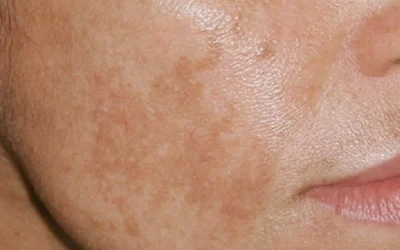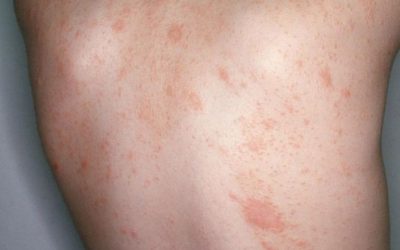Psoriasis
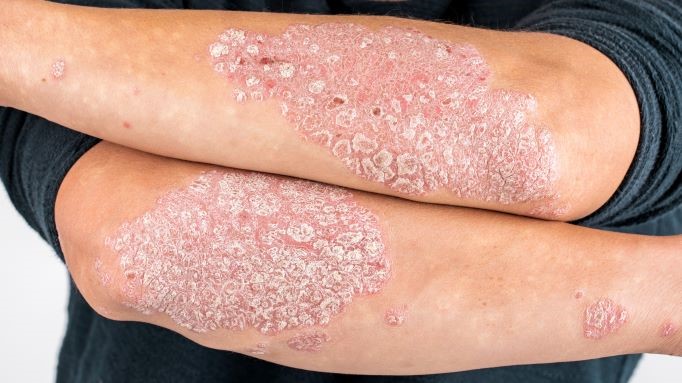
Psoriasis can be characterized by:
- skin rashes (usually plaques and/or papules) that are covered with silvery or white scales;
- after contact with the sun – a reduction in rashes is observed (not in all cases);
- the most frequently affected areas are: the skin behind the ears, the scalp, the skin of the flexor elbows and knees, and the sacrum;
- nail lesions (in a third of patients), which are sometimes confused with nail fungus;
- joint swelling, pain (psoriatic arthritis);
- psychosocial and quality of life changes;
- concomitant diseases: diseases of the cardiovascular system, diabetes, obesity, osteoporosis, inflammatory bowel diseases.
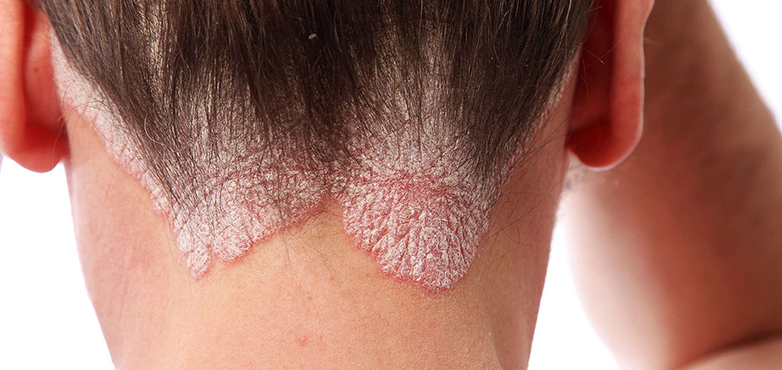
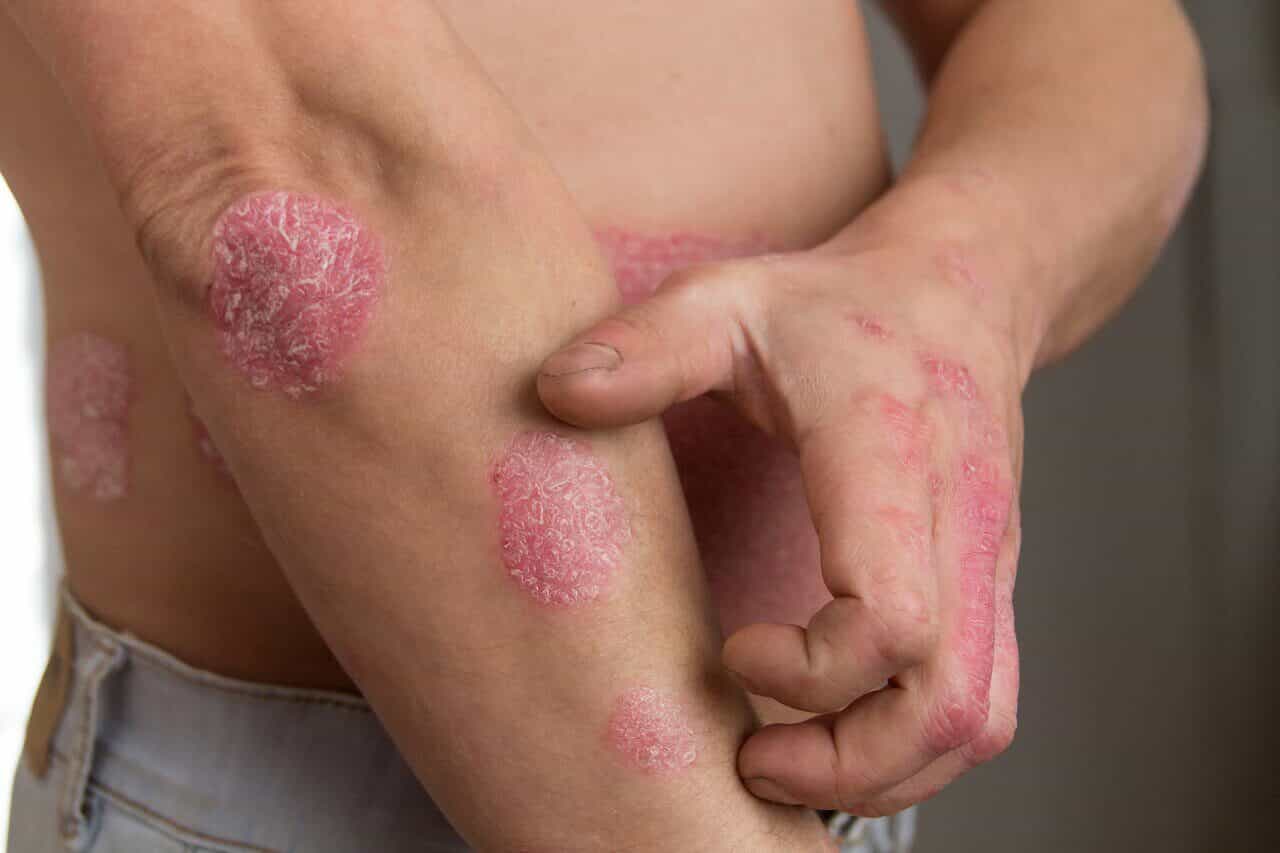
Scientists have not yet determined the exact cause of psoriasis, but it is known that the disease develops due to a combination of genetic, immune, and environmental factors.
Skiriami 2 types of psoriasis:
- Type I
- Gets sick up to 40 years old.
- More often, the course of the disease is more severe.
- Family inheritance (60-70%).
- Type II
- Sick over 40 years old.
- Relatively mild course of the disease.
With psoriasis, the course of the disease is variable: the rash may increase, decrease or disappear altogether. Rashes can be provoked by infections, stress, alcohol, smoking, use of certain drugs, unbalanced diet, mechanical, physical or chemical stimuli and other factors.
Classification of psoriasis
• Plaque psoriasis (the most common form);
• Guttate psoriasis
• Pustular psoriasis
• Inverse psoriasis;
• Erythrodermic psoriasis;
• Psoriatic nail disease;
• Psoriatic arthritis.
Diagnostics
Psoriasis is diagnosed during a survey and physical examination (inspection, palpation), in rare cases a skin biopsy is required. Psoriasis is characterized by Aušpitz’s triad of symptoms – when the rash is gently scratched with a spatula, a pink, thin, shiny film is observed, and when the film is scratched, small dots of blood appear. There are no other laboratory tests that confirm the diagnosis of psoriasis.
Additional research:
Psoriasis patients are evaluated for psoriatic arthritis, and if a lesion is suspected, radiological examinations are performed and referral is made to a rheumatologist. Signs of other concomitant diseases (obesity, metabolic syndrome, hypertension, diabetes and atherosclerosis) are evaluated.
Treatment
Psoriasis is a chronic condition with no known cure, but various treatment options can alleviate symptoms and improve skin health. The choice of treatment is often multifaceted, considering factors like the severity of the condition, accompanying health issues, cost, convenience, and how the individual responds to therapy.
Each patient’s treatment is tailored to their specific needs. Initially, topical solutions are commonly recommended. If there’s no significant improvement in skin condition with these initial treatments, therapies utilizing light may be suggested. In cases where a combination of topical treatments and light therapy doesn’t provide adequate relief within a few months, and the patient’s quality of life is significantly impacted, more comprehensive care may be advised. This could involve systemic treatments under close medical supervision.
It’s also crucial for individuals with psoriasis to avoid certain risk factors that could exacerbate the condition, such as stress, alcohol, and smoking.


Vitiligo – Why Do White Patches Appear on the Skin and How to Treat Them?
Vitiligo is a non-contagious skin condition characterized by white patches due to the loss of pigment. While it does not pose a direct threat to physical health, it can have a significant psychological impact. Learn what causes vitiligo, its symptoms, how it is diagnosed, and which treatment methods are currently available.
Hyperpigmentation: Causes, Types, and Modern Treatment Options
Hyperpigmentation is a common skin condition characterized by dark spots that appear due to sun exposure, hormonal changes, or skin damage. In this article, you will learn about the main types and causes of hyperpigmentation, as well as how to effectively treat it using modern dermatological methods and preventive care.
Pityriasis rosea
An acute, self-limiting, exanthematic skin disease that manifests as itchy, somewhat inflammatory, scaly rashes, usually on the torso, chest, and upper limbs.



